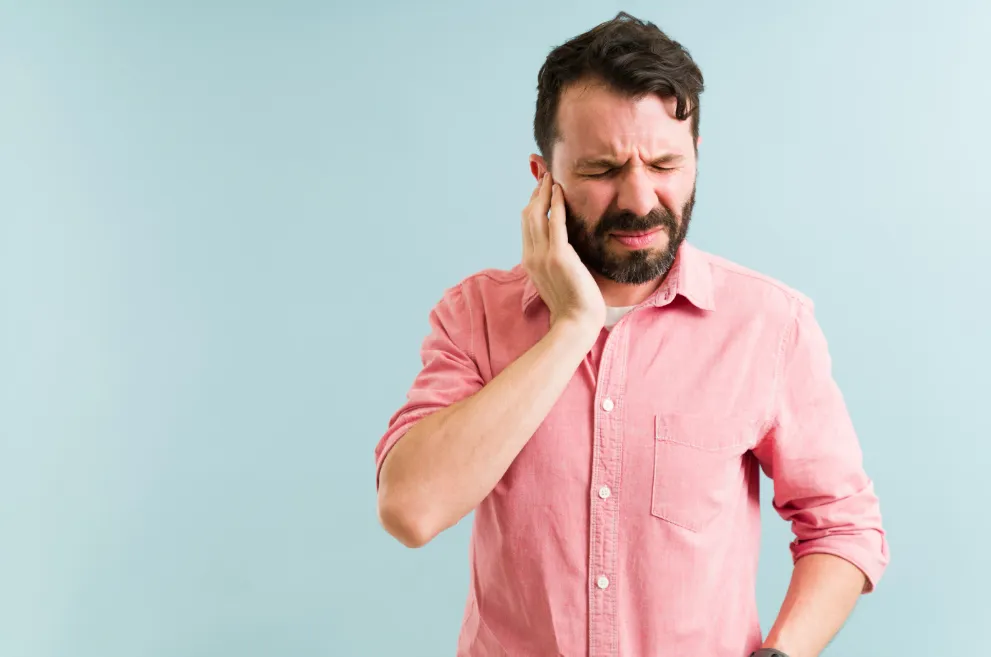Written and medically reviewed by Dorcas Morak, PharmD
Tinnitus is a condition characterized by ringing, buzzing, or other sounds in the ears or head that are not caused by an external source. It affects millions of people around the world, and while it is not a disease, it can be a symptom of an underlying health problem. In this article, we will explore the causes of tinnitus, the different types of tinnitus, and the available treatments that can help manage the symptoms of this condition.What is tinnitus?
Tinnitus is a ringing sound in one or both ears that is not caused by an external source. It affects about 2.6 billion people globally and is more common among the older population. It can also present as buzzing, roaring, hissing, chirping, clicking, pulsing, etc.
What causes tinnitus?
Tinnitus is not a disease but rather a symptom of an underlying condition. Older people and those whose jobs and lifestyles frequently expose them to loud noise can have tinnitus. Tinnitus can be caused by a variety of factors, including:
- Exposure to loud noise: Prolonged exposure to loud noise, such as music concerts or heavy machinery, can damage the delicate hair cells in the inner ear, leading to tinnitus.
- Age-related hearing loss: As we age, the cells in our inner ear naturally start to deteriorate, which can cause tinnitus.
- Earwax buildup: Earwax can accumulate in the ear canal, leading to a blockage that can cause tinnitus.
- Medications: Some medications, such as certain antibiotics and anti-inflammatory drugs, can cause tinnitus as a side effect.
- High blood pressure: Elevated blood pressure can cause tinnitus in some individuals.
- Vestibular disorders (such as Meniere’s disease)
Types of Tinnitus
There are two types of tinnitus: subjective and objective.
Subjective tinnitus is the most common type and is only heard by the person experiencing it. It is often caused by damage to the hair cells in the inner ear.
Objective tinnitus is rare and can be heard by an observer, such as a doctor, through a stethoscope. It is usually caused by a blood vessel problem or muscle contractions in the ear.
How is tinnitus diagnosed?
Your doctor will ask about your symptoms and then may perform a series of examinations to check for an underlying cause. Examinations may include checking your ears, head, and neck. You may be referred to an audiologist for a hearing test. In some cases, there may be a need for a CT/CT angiography or MRI.
What are the treatment options for tinnitus?
While there is currently no cure for tinnitus, there are several treatment options available to help manage the symptoms of this condition. These include:
- Sound therapy: Sound therapy involves using external sounds to help mask or reduce the perception of tinnitus. This can include white noise machines, music, or nature sounds.
- Cognitive-behavioral therapy (CBT): CBT is a type of therapy that can help individuals with tinnitus manage their emotional and psychological responses to the condition.
- Medications: Some medications, such as antidepressants or antianxiety drugs, may help reduce the symptoms of tinnitus.
- Hearing aids: Hearing aids can help improve hearing and reduce the perception of tinnitus.
- Tinnitus retraining therapy (TRT): TRT is a type of therapy that combines sound therapy with counseling to help individuals habituate to the sound of their tinnitus.
What medications can treat tinnitus?
There is no FDA-approved medication for the treatment of tinnitus. However, your doctor may prescribe medications to treat an underlying condition that may be causing your symptoms. The medications may include:
- Antibiotics: Antibiotics may be prescribed if an ear infection is an underlying cause. The commonly prescribed one is amoxicillin (Trimox).
- Antidepressants: Your doctor may prescribe a tricyclic antidepressant to relieve the depression symptoms that come alongside chronic tinnitus. Examples include Anafranil (clomipramine), Norpramin (desipramine), Pamelor (nortriptyline), and Tofranil (imipramine).
- Anti-anxiety medications: These medications manage stress and anxiety associated with tinnitus since stress can worsen tinnitus symptoms. Examples include Xanax (alprazolam), Valium (diazepam), or Ativan (lorazepam).
- Campral (acamprosate): Campral does not have FDA approval for tinnitus treatment, but some doctors may consider it to treat tinnitus. Studies have shown that Campral decreases the severity of tinnitus in some patients.
- Misoprostol: Misoprostol has been found to help tinnitus in people with diabetes and people with hypertension.
- Dexamethasone: This is used to treat underlying ear disease that can cause tinnitus. Such conditions include hearing loss, Meniere's disease, or autoimmune inner ear disease.
What are the nonpharmacological treatment methods for tinnitus?
The suitable nonpharmacological approach depends on the underlying cause. It may include removing earwax, electrical cochlear stimulation, discontinuing medications that cause tinnitus, protecting your ear from loud noise, sound masking, acupuncture, hypnotherapy, biofeedback, counseling, and behavioral therapies.
Can I use an antihistamine to help tinnitus?
Antihistamines are sometimes used for tinnitus. However, the study on the beneficial effects of antihistamines for tinnitus is inconclusive.
If your doctor prescribes you medications to treat your condition, you can save as much as 88% by using an RxLess prescription discount card. See how to use the RxLess discount card at your local pharmacy, including CVS, Rite Aid, and Walgreens.
















